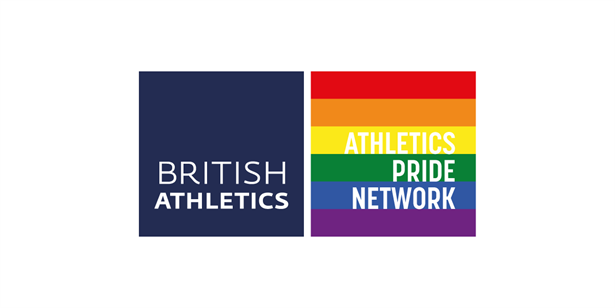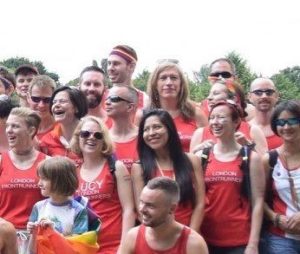
20th November 2020
TRANS AWARENESS WEEK: ATHLETICS PRIDE NETWORK'S, SUSIE O'CONNOR
As Trans Awareness Week draws to a close (13-19 November) and we reflect on Transgender Day of Remembrance (20 November), Athletics Pride Network core member, Susie O’Connor, writes about the transformative and positive impact running and coming out as transgender has had on her life.
“Sport can be a life-saver for transgender people. They’ve been fighting themselves and feeling like they were in the wrong body. Sport gives them a place to be happy about their body and what it can do.”
– Helen Carroll, LGBTQ sports advocate
I came later in life to a couple of things which have been transformative and really positive for me: running and coming out as transgender.
I began ‘serious’ running seven years ago. It has not only brought me fitness and the sheer physical joy of running, but has also blessed me with wonderful friendships and the camaraderie of my fellow runners. And, as most runners will recognise, it has also been fantastic for my mental health and well-being.
I transitioned gender two and a half years ago, finally revealing the complete me to the world. It lifted a great mental and emotional burden which I had been carrying since childhood. Like running, my transition was also really positive for my well-being and gave me a massive boost of confidence to really make the most of life. Fellow runners in my two clubs were incredibly supportive and accepting. My acceptance as a trans athlete brought together two core parts of my identity: runner and trans woman.
This week is Transgender Awareness Week and I’ve been giving some thought to why trans people’s participation in sport is so low. I began reflecting on my own experiences with sport. I went to an all-boys, rugby-playing school and hated the laddish, locker-room culture. In my early teens, as I became clearer about my gender identity, I started to get very self-conscious about my body image which made the boys changing rooms a very uncomfortable place. I ducked out of games afternoons and gym sessions, becoming adept at forging sick notes or just going AWOL. As I moved into adulthood, I stayed away from team sports, sports clubs and gyms as they all reminded me of the negative experiences of childhood. So it was only a few years ago when I was trying to escape my couch potato status that I discovered the joy of running.

I asked some of my trans friends about their experiences of sport and why many of them didn’t participate. Some said they were put off by the exclusionary competition policies of some sports bodies. Others were uncomfortable in communal changing rooms especially in swimming pools and gyms. It was especially uncomfortable for those going through a medical transition and exhibiting physical changes. Others mentioned the perceived social conservatism of some sports clubs and non-binary friends pointed to the lack of efforts by many sports organisations to include non-binary people. For example, some bodies which claimed to be inclusive of non-binary people, had online membership forms which required people to declare themselves either ‘male’ or ‘female’. The impact of hormone therapy was also mentioned by some trans women friends: the suppression of testosterone causing significant performance loss and making participation a bit of a slog.
According to research by trans advocacy organisation, Gendered Intelligence, 88% of non-participating trans people they surveyed said being trans was a factor. The research found many things which deterred young trans people’s participation in sport, including stopping participating after transition, transphobia and bullying, safety and lack of inclusivity. But GI’s research also revealed that trans people could derive positive benefits from participation such as empowerment and affirming their identity. The study identified a number of things organisations could do to be more trans-inclusive. Here’s a few of them:
- Have a clear well publicised policy for trans inclusion
- Promote diversity and celebrate trans athletes
- Educate everyone on needs of trans people
- Ensure more gender-inclusive changing rooms, kit, and teams
- Create a space where being trans is not commented on
- Appoint/train up LGBT coaches
- Encourage everyone to state pronouns and use gender inclusive language
Thanks to GI for sharing some advance initial findings from their research into trans people’s experiences in sport, which they plan to publish online in 2021. Do keep an eye out for the full information. GI also provides trans inclusion consultancy and training, including specific sessions about trans inclusion in sport. Visit http://genderedintelligence.co.uk/professionals/training for details.
I’ve had a wonderful opportunity to promote trans and broader LGBT+ inclusion in athletics through my participation in UK Athletics’ fantastic Athletics Pride Network initiative and am looking forward to spreading the messages of trans inclusion in the sport.


